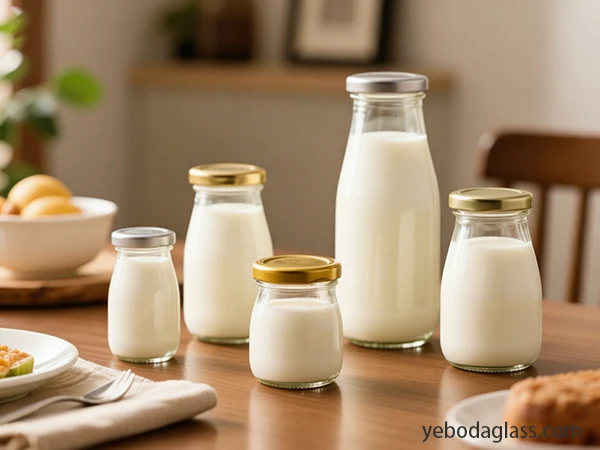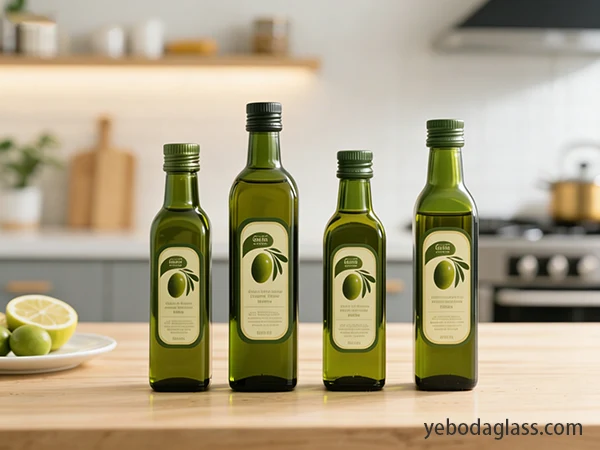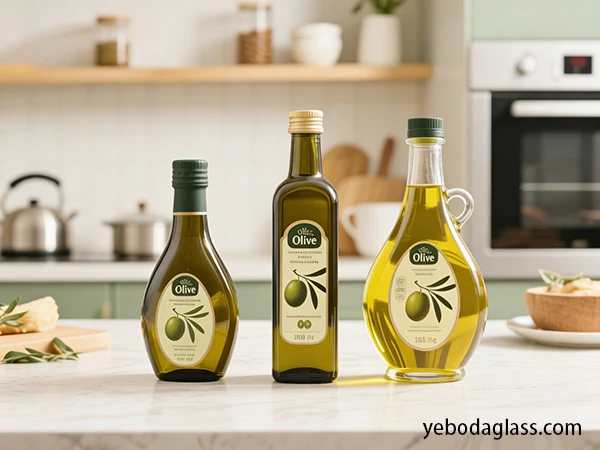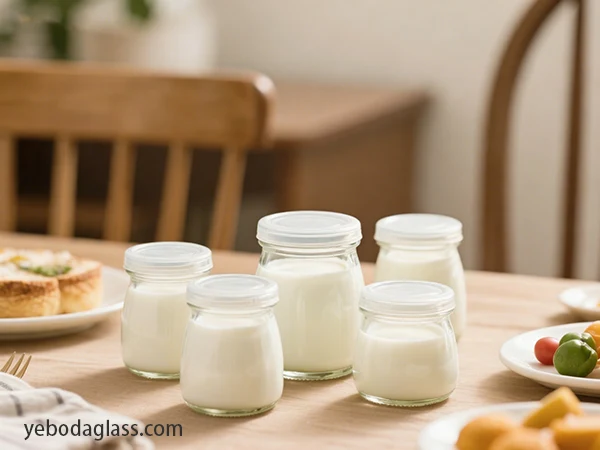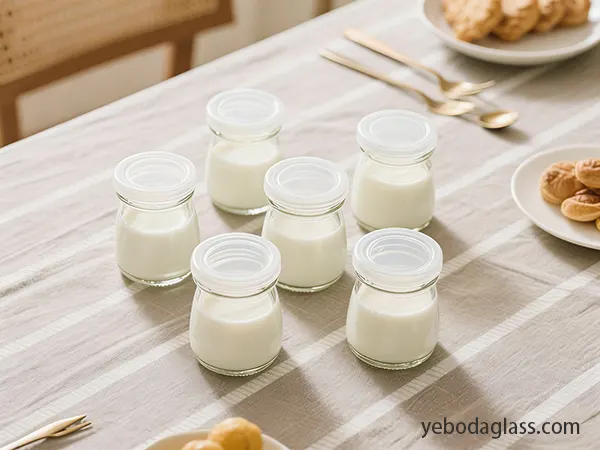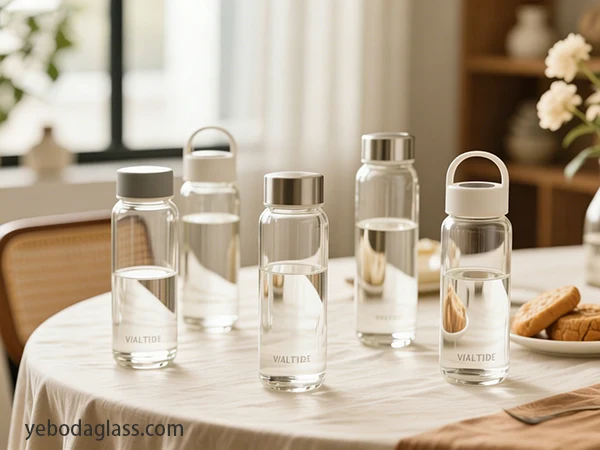Úvod
Tato zpráva nabízí strategického průvodce výběrem velkoobchodních dodavatelů skleněných kořenírenských dóz se zaměřením pouze na důležité faktory nad rámec hodnoty. Zdůrazňuje strukturovaný přístup k definování požadavků na zadávání veřejných zakázek, analýze cílových trhů a vytvoření silné struktury pro hodnocení dodavatelů. Mezi hlavní myšlenky patří certifikát kvality, minimální objednané množství (mOQ), dodací lhůta, adaptační kapacita a morální postupy při získávání zdrojů. Zpráva se také zabývala odhady objemu, posouzením škálovatelnosti, zmírňováním rizik, procesy fixní péče, strategiemi dialogu a implementačním plánem. Dodržováním této struktury si podniky mohou zajistit spolehlivé a vysoce kvalitní dodavatele, kteří dokáží sladit své provozní a strategické cíle, což zajišťuje konzistentní a nákladově efektivní dodávky skleněných kořenírenských dóz.
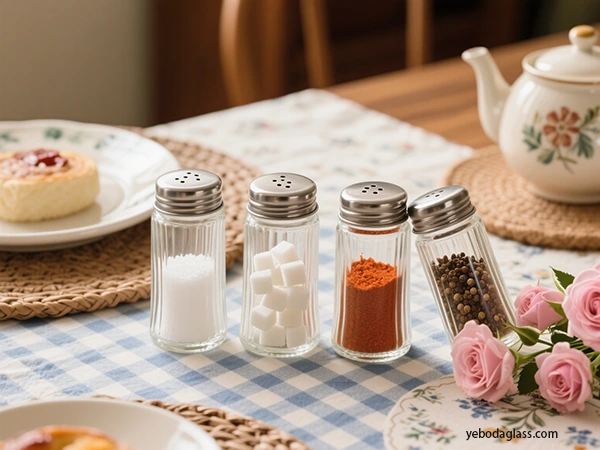
Definujte požadavky na nákup
Výběr vhodné skleněné kořenící nádoby začíná přesnou definicí specifikací produktu, které odpovídají zamýšlenému použití. To zahrnuje rozšíření požadované kapacity, typ víka, tvary nádob a fyzikální vlastnosti.
Kapacitní a funkční kategorie
Kapacita: Skleněné kořenící dózy jsou k dispozici v široké škále velikostí, obvykle od 30 ml (1 unce) do 473 ml, přičemž oblíbené varianty zahrnují 28 ml, 54 ml, 177 ml a 227 ml. Pro speciální požadavky je k dispozici i velká kapacita až 947 ml.
Typ víka a možnost vypnutí
- Typ víka: Rozmanitá nabídka produktů s víkem zajišťuje čerstvost a uživatelské vlastnosti. Mezi obecné možnosti patří:
- Plastové víčka: Často k dispozici v černé nebo bílé barvě, často s třepačkou pro kontrolované dávkování.
- Kovové víčka: Včetně víček šejkrů s kartonovou vložkou nebo šroubovacích víček, někdy v povrchové úpravě, jako je zlato.
- Možnosti vzduchotěsnosti: Korkové víčka poskytují vzduchotěsné uzávěry, ideální pro zachování kvality koření. Bambusová víčka také nabízejí esteticky příjemné a udržitelné uzavření.
- Speciální víčka: Potes de conserva Mason de 473 ml (16 oz) para geleias (venda por atacado)
Tvary a aspekty kvality materiálu
- Uso pessoal: Esses potes de vidro são perfeitos para geleias caseiras, molhos, conservas ou projetos de artesanato. A tampa hermética mantém os alimentos frescos e o design quadrado torna o armazenamento organizado e elegante.
- Kolo: Esses potes de geleia são ideais para lojas de produtos naturais, pequenos produtores de alimentos ou marcas artesanais. A tampa bipartida com vedação garante a qualidade do produto, melhorando a apresentação na prateleira e o apelo junto ao cliente.
- Náměstí: Včetně designů francouzského čtverce a pravidelného čtverce, které nabízejí efektivní využití prostoru na poličkách.
- Obdélníkový: Další možnost úspory místa.
- Strait-Side: Minimální a moderní design.
- Lékárník: cítit se jako vintage nebo řemeslník.
- Vlastní návrh: Dodavatelé mohou vyrobit zakázkové formy pro jedinečnou identitu značky.
- Tloušťka a kvalita materiálu: Sklenice se obvykle vyrábějí z odolného, hrubého skla, které je vhodné do myčky nádobí. I když specifické údaje o tloušťce nejsou v obecných popisech produktů vždy široké, „odolné silné sklo“ znamená představu o odolnosti proti rozbití a odolnosti vůči tepelným šokům. Další kontrola konkrétních typů skla (např. sodno-limetkové, borosilikátové) a jejich příslušných vlastností odolnosti vůči tepelným šokům může upozornit na významné teplotní výkyvy.
YebodaSkleněné kořenící dózy jsou známé svým odolným tlustým sklem, vzduchotěsnými víčky a přizpůsobivými tvary, které firmám poskytují výhodu jak z hlediska estetiky, tak i funkčnosti.
Analýza cílového trhu a aplikací
Je důležité zvážit požadované použití a cílový trh skleněné kořenící nádoby a vybrat si dodavatele, kteří splňují požadavky, regulační požadavky a estetická očekávání daného odvětví.
Maloobchodní trh: Pro přímý prodej spotřebitelům nabízejí maloobchodníci, jako například Goals, různé skleněné dózy na koření v různých velikostech a provedeních, přičemž se často zaměřují na estetickou přitažlivost, aby ladily s kuchyňskými dekoracemi. Nabízejí alternativy s různými typy víček (dřevěné, kovové, plastové) a cenovými hladinami, které často zahrnují exkluzivní spolupráci se značkami.
- Trh stravovacích služeb: Tato sekce upřednostňuje trvanlivost a funkčnost díky nepřetržitému používání a čistotě. Velkoobchodní objemy jsou běžné a snadné použití, například sklenice se širokým hrdlem pro snadný přístup, je důležitou myšlenkou. I když ne všechny výsledky vyhledávání jsou jasně uvedeny, skleněné kořenící sklenice používané v komerčních kuchyních mohou vyžadovat splnění norem bezpečnosti potravin, jako je certifikace NSF.
- Řemeslný výrobce: Řemeslné značky často hledají jedinečné a vizuálně atraktivní obaly, které odrážejí prémiovou kvalitu svých produktů. Šestihranné sklenice, zakázkový design a zářivé barvy mohou pomoci značce vyniknout. Malé sklenice (např. mini, 113 g) jsou ideální pro speciální směsi nebo limitované verze.
- Domácí organizace: Spotřebitelé, kteří se zaměřují na organizaci domácnosti, často preferují podobné, na sebe naskládané sklenice pro efektivní skladování. Vzduchotěsné dózy jsou důležité pro zachování čerstvosti a úsporu místa.
- Regulační nápady: Skleněné kořenící dózy určené ke skladování potravin by měly splňovat příslušná pravidla pro materiály přicházející do styku s potravinami, která stanoví například Úřad pro kontrolu potravin a léčiv (FDA).
- Nové trendy: Rostoucí poptávka po odolných obalech, včetně skla vyrobeného z recyklovaných materiálů, ovlivňuje tržní trendy. I když se spekuluje, integrace chytrých technologií do obalů, jako jsou senzory pro sledování čerstvosti, může představovat budoucí trend.
Skleněné kořenící dózy Yeboda splňují požadavky řemeslníků i maloobchodníků, kteří nabízejí standardy FDA, které si s nimi nerozporují, přizpůsobivé formy a prémiové čiré sklo.
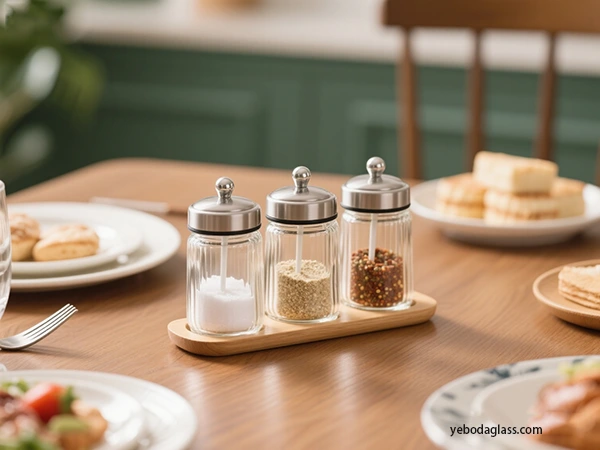
Strategie geografického získávání zdrojů
Výběr geografických oblastí pro získávání skleněných kořeníren ve velkém množství zahrnuje pečlivé vyvážení nákladů, kvality, logistiky a geopolitické stability.
- Náklady a práce: Rozvíjející se ekonomiky v jihovýchodní Asii a Jižní Americe mohou nabídnout nízké náklady na pracovní sílu, což je činí atraktivními pro výrobu citlivou na náklady. Vyžaduje to však přísnou kontrolu kvality.
- Odborné znalosti ve výrobě: Země jako Německo a Čína mají pokročilé technologie a odborné znalosti v oblasti výroby skla, což potenciálně vede k vysoké kvalitě a efektivitě.
- Logistika a tranzit: Náklady na dopravu z regionů, jako je Asie, z oblastí, jako je Severní Amerika nebo Evropa, mohou být dostatečné, což může být ovlivněno dostupností přístavních davů a kontejnerů.
- Obchodní dohody a cla: Dohody jako USMCA nebo CPTPP mohou výrazně snížit nebo odstranit cla ovlivňující rozhodování o zdrojích.
- Stabilita a morální praktiky: spolu s morálními pracovními praktikami – uhlíkovou stopou výroby a dopravy – se stávají rychle důležitými myšlenkami.
- Podskupina v měně: Nestabilita směnných kurzů může ovlivnit náklady na získávání surovin z různých zemí.
- Typ a kvalita skla: Různé obory se mohou specializovat na specifické typy skla, proto je nutné zajistit kompatibilitu.
Skleněné kořenící dózy vyrobené za přísných standardů kvality, které ukazují, jak globální zdroje mohou spojit nákladovou efektivitu s trvanlivou výrobou.
Rámec pro hodnocení dodavatelů: Nad rámec ceny
Pro identifikaci partnerů, kteří mohou poskytovat časté a kvalitní skleněné kořenící dózy a spolehlivý servis, je nezbytná komplexní struktura pro hodnocení dodavatelů.
Certifikát kvality a shoda
Dodavatelé by měli dodržovat příslušné průmyslové normy a certifikáty, jako je ISO (např. ISO pro řízení kvality), a shodu s požadavky na potravinářskou kvalitu. U koření mohou být důležité certifikáty, jako je bio nebo bez GMO. Dodavatelé by měli k těmto certifikátům poskytnout dokumentaci, ideálně každoročně aktualizovanou.
Minimální objednané množství (MOQ)
Minimální objednávkové množství se u jednotlivých dodavatelů značně liší. Například někteří dodavatelé mohou začít s 2 000 kusy na návrh, zatímco dokonale individuální návrhy mohou vyžadovat 50 000 kusů. Pochopení těchto požadavků je důležité pro sladění s objemy.
Dodací lhůty a spolehlivost dodávek
Pro plánování zásob je důležité posoudit konkrétní dodací lhůtu dodavatele pro výrobu a distribuci. Kromě uvedených dodacích lhůt by se měly vyhodnotit i jeho výsledky v oblasti odpovědnosti za včasné dodávky a okamžité objednávky.
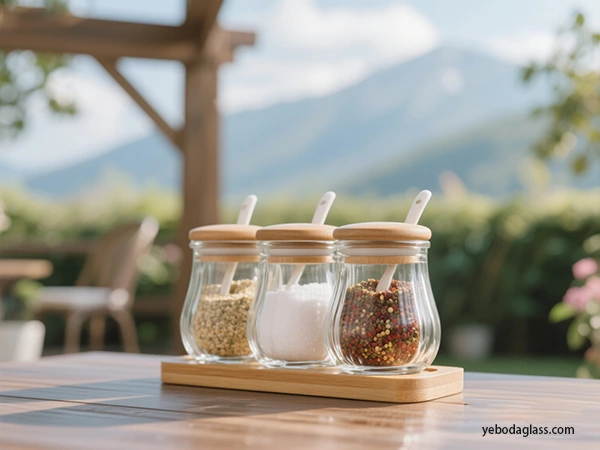
Adaptační schopnosti
Možnost personalizace sklenice je důležitá pro rozlišení značky. Může to zahrnovat:
- Unikátní velikost: prostřednictvím výroby forem na zakázku.
- Branding: reliéfní logo nebo vlastní označení.
- Možnost víka: podrobný výběr materiálů a funkčnosti.
- Barva: Tónované sklo pro ochranu před UV zářením (např. jantarové, zelené).
Morální získávání zdrojů a pracovní praktiky
U fixní a tvrdé práce by dodavatelé měli zajistit dodržování správných pracovních postupů, bezpečného pracovního prostředí a morálních zásad pro získávání zdrojů. Tato značka je velmi důležitá pro reputaci a důvěru spotřebitelů.
- Výrobní proces a systém kontroly kvality: Audit by měl posoudit stavební procesy dodavatele, včetně jeho systému řízení kvality, jako je statistická kontrola postupů (SPC), a dodržování mezinárodních norem.
- Finanční stabilita: Posouzení finančního zdraví potenciálních dodavatelů je důležité pro zajištění jejich dlouhodobé životaschopnosti.
- Postupy pro zajištění stability: Hodnocení závazku dodavatele ke stabilitě, včetně recyklovaných materiálů, energetické účinnosti a používání postupů nakládání s odpady, je v souladu s rostoucími očekáváními spotřebitelů a regulačních orgánů.
- Dostupnost a vyhodnocení vzorku: Schopnost získat vzorky a důkladně je vyhodnotit není dokonalý krok. To umožňuje stabilitu, integritu těsnění, estetickou přitažlivost a přímé vyhodnocení celkové kvality předtím, než jsou zadány velké objednávky.
Posouzení objemu a škálovatelnosti
Důkladné vyhodnocování přesných odhadů objemu a škálovatelnosti dodavatelů je důležité pro zajištění toho, aby nákupní strategie mohla uspokojit současnou i budoucí poptávku bez kompromisů v kvalitě nebo nadměrného zvýšení nákladů.
- Růst trhu a odhad: Odhaduje se, že globální trh s kořením do skla zaznamená stabilní růst na trhu se sklenicemi s odhadovanou složenou roční mírou růstu (CAGR) 4,5 % v letech 2025 až 2035.
- Hnací síla poptávky: K rostoucí poptávce přispívají preference spotřebitelů dbajících na životní prostředí, prodej koření petu, expanze elektronického obchodování, trendy v domácím vaření a institucionální využití.
- Kapacita a škálovatelnost dodavatelů: Je důležité posoudit výrobní kapacitu, flexibilitu s emocemi a schopnost řídit výrobu forem na zakázku.
- Předpovědní vybavení a umělá inteligence: Pokročilá řízená poptávka pomocí umělé inteligence vylepšuje systém prognózovaných zásob a snižuje plýtvání.
- Řízení zásob: Umělá inteligence dokáže optimalizovat stav zásob a předvídat potenciální narušení, aby zajistila plynulé dodávky.
Strategie hodnocení a zmírňování rizik
Nákup velkoobchodních skleněných kořeníren s sebou nese základní riziko, které je třeba průběžně řídit.
- Narušení dodavatelského řetězce: globální události, geografická koncentrace, logistické problémy a nestabilita poptávky.
- Riziko kontroly kvality: nekonzistentní kvalita, poškození během přepravy a neporušenost obalu.
- Koleje v měně: Náklady a strategie pro zajištění proti devizovým rizikům.
- Jiné riziko: Finanční volatilita dodavatelů, nedodržování etických a environmentálních předpisů, ochrana duševního vlastnictví.
- Strategie zmírňování: diverzifikace dodavatelů, silné smlouvy, nástroje pro viditelnost dodavatelského řetězce a neformální plánování.
Výběr dodavatelů a pečlivost
Funkce užšího výběru
- Včasný screening: V závislosti na definovaných požadavcích na zadávání veřejných zakázek.
- Shromažďování informací: Dotazník pro dodavatele.
- Včasné posouzení: Posuďte limit produktu a jeho shodu s požadavky.
- Problémy s výzvou k nabídkám: Vyžádejte si podrobnou cenu, dodací lhůtu a dostupnost vzorků.
- Vyhodnocení vzorku: posouzení trvanlivosti, utěsnění
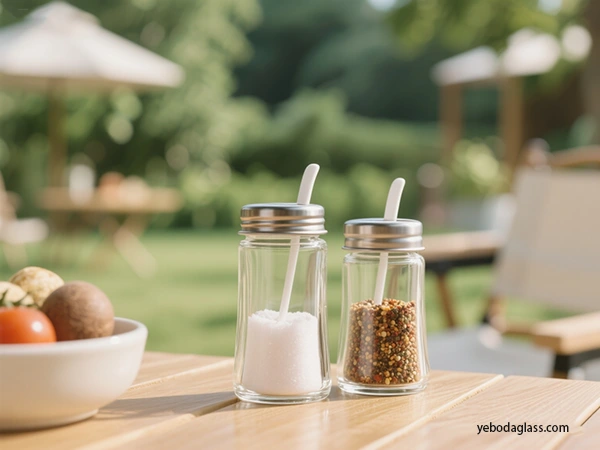
Vhodné kroky tvrdé práce
- Audit továrny: Výrobní proces, řízení kvality, dodržování předpisů pro práci a životní prostředí.
- Ověření kapacity a škálovatelnosti.
- Kontrola referencí: stabilita, odpovědnost, celková spolehlivost.
- Hodnocení finanční stability.
- Ověřování morálních zdrojů.
- Přezkumy složek: rozsah, část o vypršení platnosti, řešení sporů, ochrana duševního vlastnictví, dodržování předpisů.

